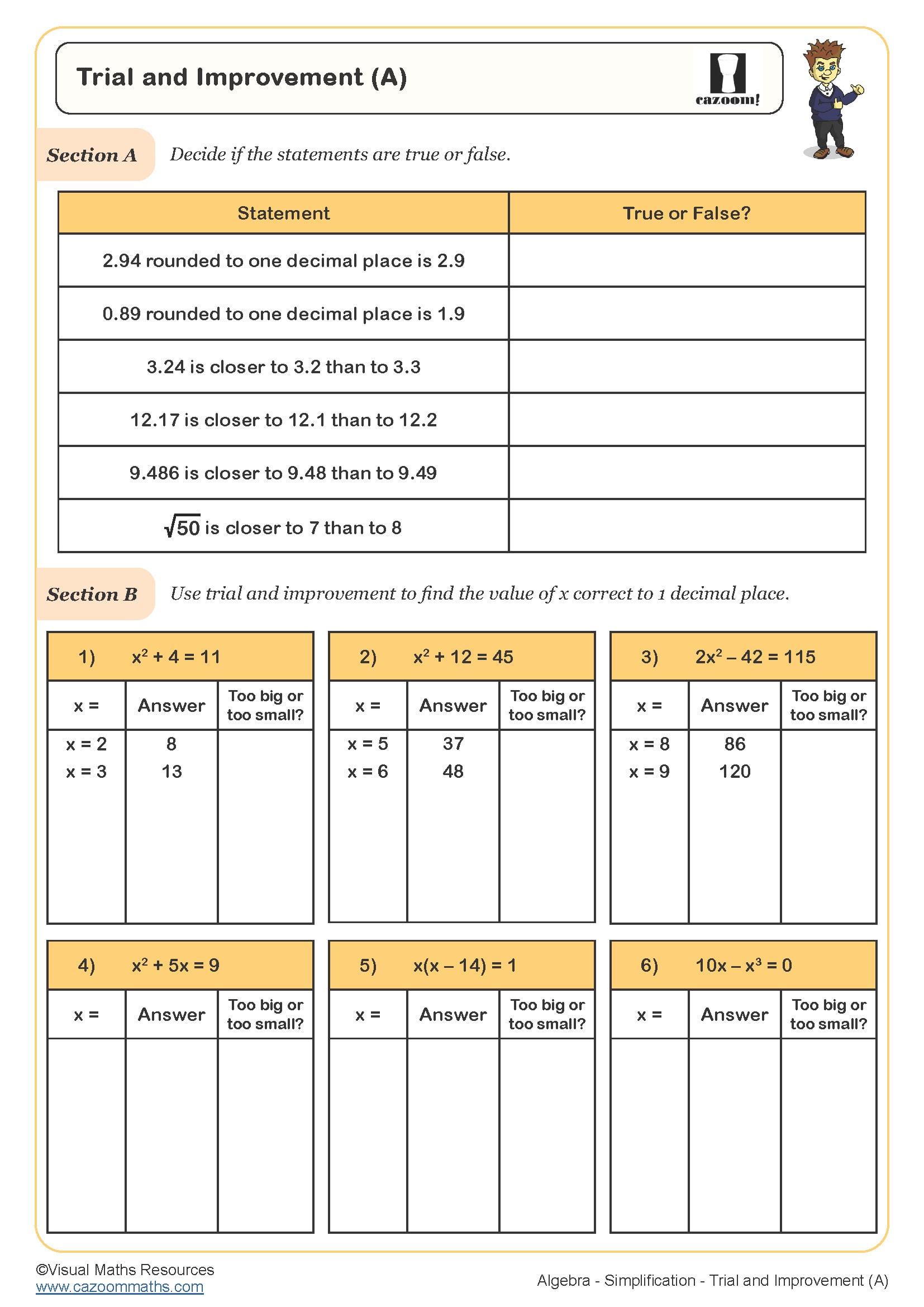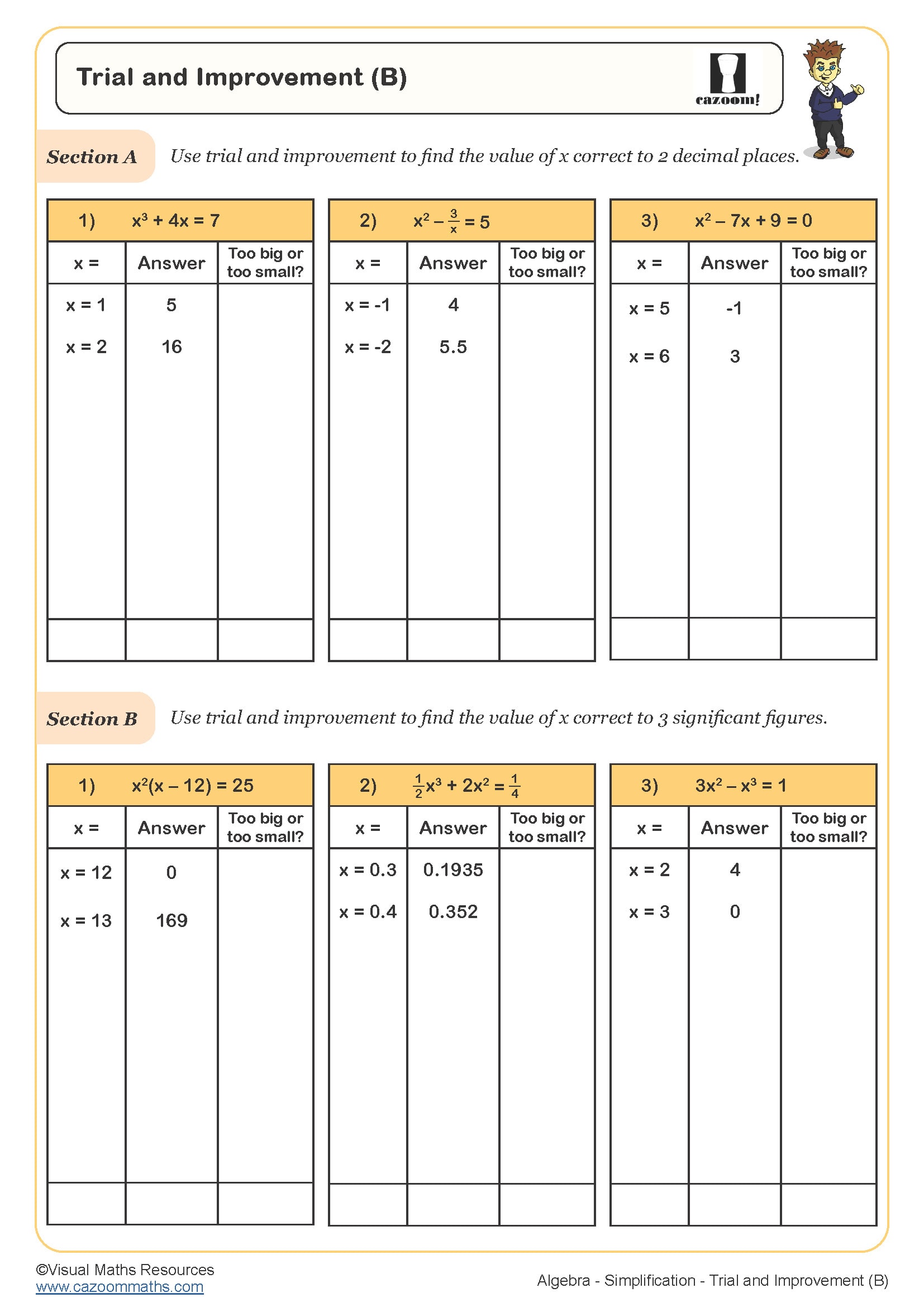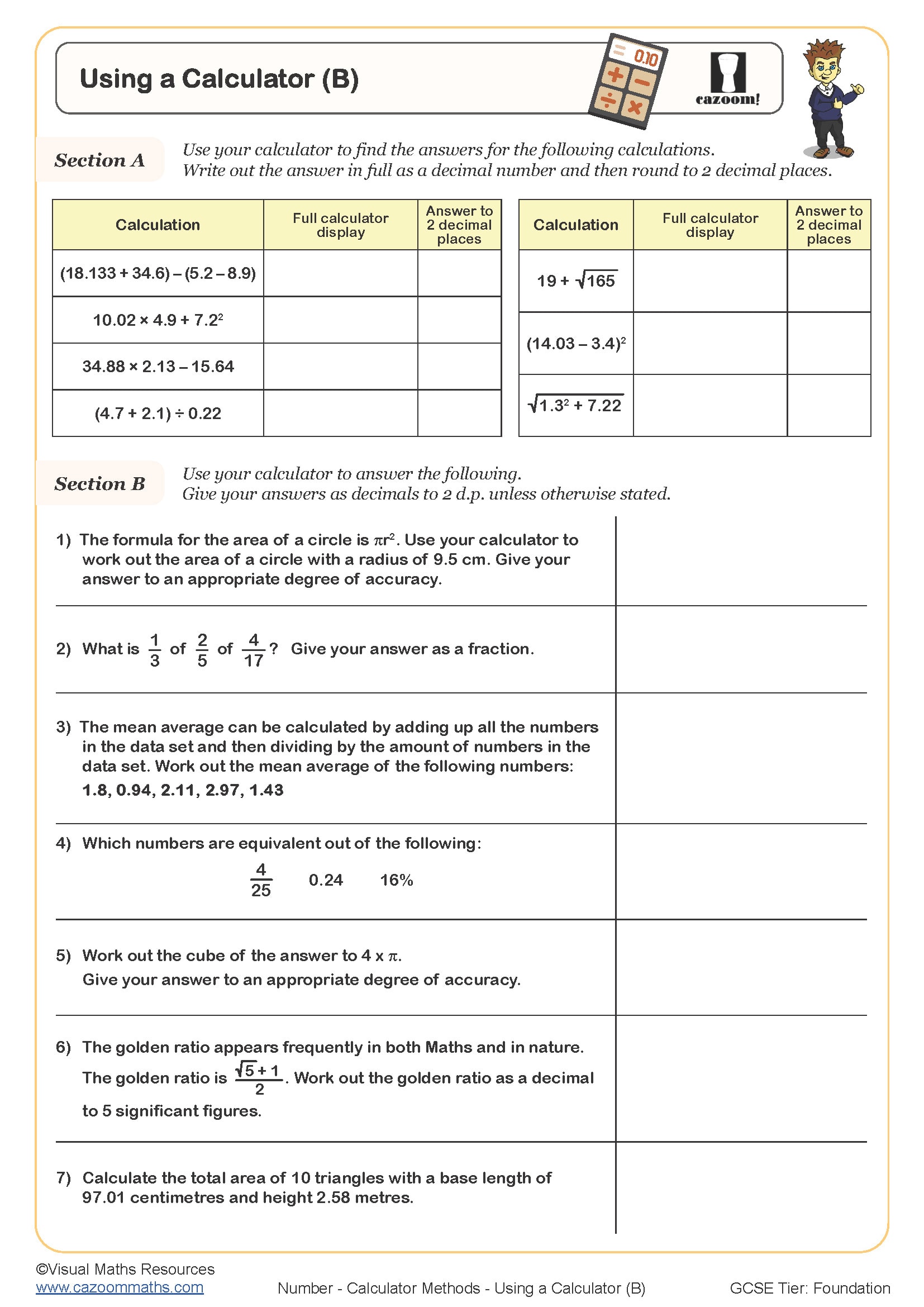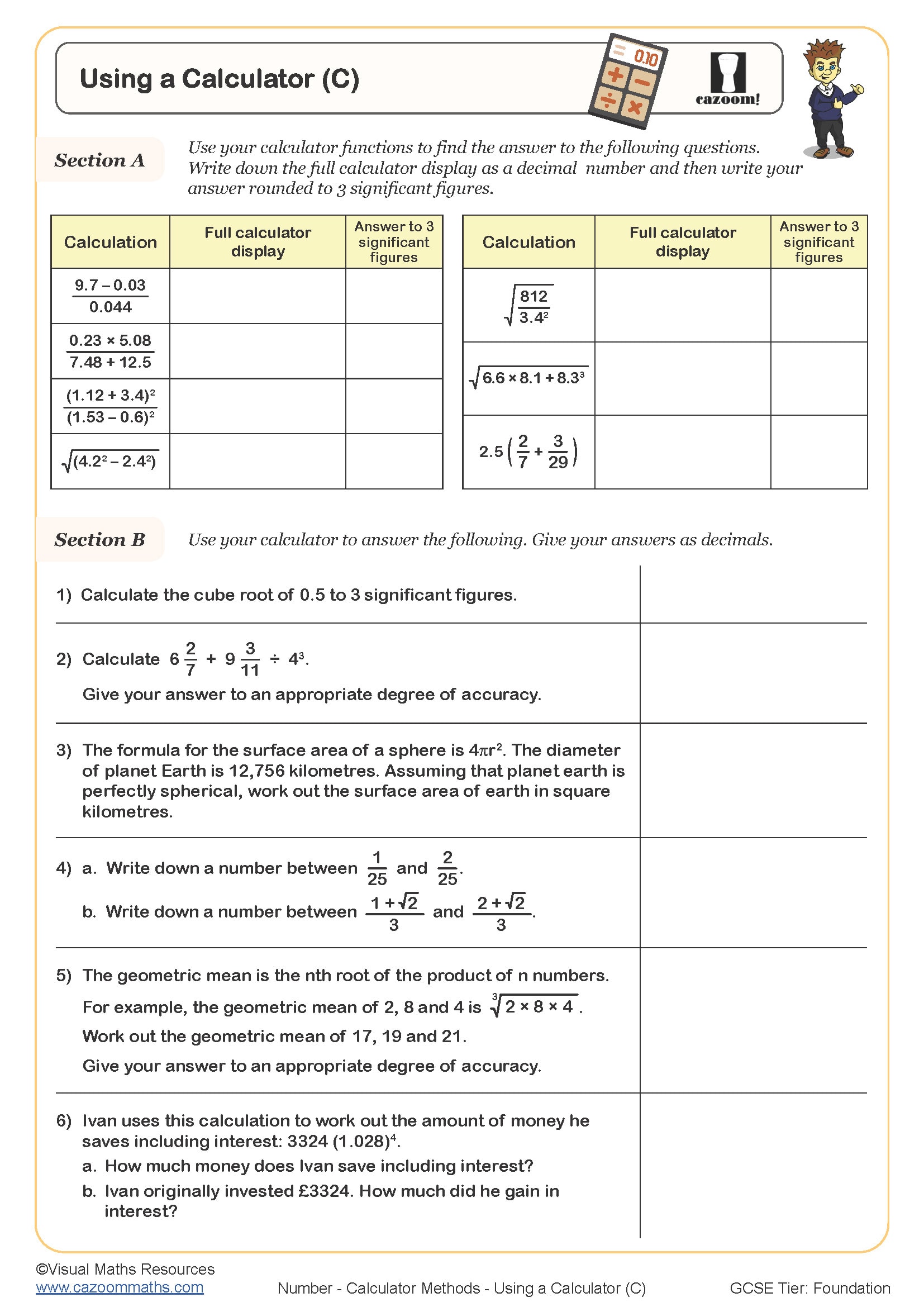Year 9 Number Worksheets
All worksheets are created by the team of experienced teachers at Cazoom Maths.
How Our Printable KS3 Number Resources Outshine Group Activities for Practice
Year 9 represents the mathematical gateway where computational skills evolve into analytical thinking. Students now face irrational numbers, scientific notation, and multi-step problems that require strategic methods instead of memorised procedures. The child needs to work with increasingly difficult content that follows the progression of GCSE standards. The worksheets provide organised practice which helps students develop systematic problem-solving skills from their mathematical confusion. Students who understand these number concepts will be better prepared to handle algebraic manipulation and functional relationships that appear in Year 10.
Specific learning benefits include:
• Master operations with surds and indices
• Develops fluency in standard form notation
• Strengthens proportional reasoning skills
• Builds accuracy with complex fractions
• Enhances estimation and bounds techniques
• Improves calculator efficiency
• Prepares systematic working methods
Core Maths Areas Strengthened by Cazoom Maths Year 9 Number Activities
These worksheets progress systematically from concrete calculations to visual representations and then to abstract reasoning. The solutions presented in the worked examples demonstrate the actual process of solving problems, rather than just showing the end results. The content provides complete coverage of basic arithmetic refinement and advanced numerical concepts, which are specific to this educational level. The various types of questions in the assessment allow students with different abilities to work at suitable difficulty levels while maintaining academic standards.
The worksheets in this collection include:
• Fractions Operations: Master all four operations with fractions and mixed numbers through systematic practice from basic to complex calculations.
• Equivalences & Conversions: Build fluency in transforming between fractions, decimals and percentages using visual and analytical approaches.
• Ratio & Proportion: Develop proportional reasoning from simple sharing problems to formal algebraic relationships.
• Percentages & Financial Maths: Progress from basic percentage changes to real-world financial applications, including interest and depreciation.
• Prime Factors & Number Properties: Explore the building blocks of numbers through factorisation techniques and their practical applications.
• Standard Form & Indices: Work confidently with very large and small numbers using scientific notation and index laws.
• Additional Number Skills: Strengthen essential techniques, including directed numbers, estimation bounds, and calculator methods.
Trusted by Educators: Why Parents Value Our Year 9 Number Worksheets Too
The materials selected by mathematics departments serve two purposes because they directly apply to classroom learning and provide complete answer keys, which expose students to mathematical reasoning methods. The worksheets include a gradual progression of difficulty levels, which allows teachers to select proper entry points for their students while keeping all students at the same high achievement level. Students can focus on mathematical problems through proper document formatting, which reduces their mental workload and prevents them from getting disoriented by document structure. The resources function within departmental schemes to enable teaching methods ranging from group learning to personalised intervention approaches. Students learn independent study skills, which are vital for GCSE success, through the uniform structure that runs across all topics.
Real-World Mathematics: Where Year 9 Number Skills Matter
Year 9 numerical techniques underpin decision-making across numerous fields. Standard form enables understanding of everything from nanotechnology measurements to astronomical distances, whilst percentage calculations inform financial literacy.
• Technology sector calculations for data storage and processing speeds
• Construction industry measurements requiring precise tolerances
• Healthcare dosage calculations based on body weight ratios
• Environmental science interpreting parts per million concentrations
• Sports analytics comparing performance statistics
• Retail pricing strategies using percentage markups
• Engineering specifications demanding accuracy bounds
• Digital media compression ratios and file sizes



